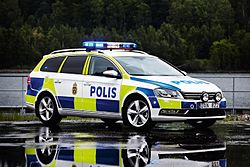James_H
And I like to roam the land
- Joined
- May 18, 2002
- Messages
- 7,629
The major differences have also been present for as long as either language has existed. There's a story of an English ambassador to the Scottish court at some point in the middle ages, having to speak french to be understood (wish I could track it down, can anyone?). The scots language became more influenced by and similar to English english after the union and of course the invention of the printing press (there were never any completed versions of the Bible in scots).Scots (proper Lallans Scots) officially is sufficiently-distinct from English to be classifiable as a seperate language, not just a dialect.
I also believe that some Scots words come directly from French at the time of the Auld Alliance, e.g. 'floors' coming from French 'flors' (modern 'fleurs') directly rather than the English word 'flowers', which came from Norman French*. 'Peedy' meaning 'small' from 'petit'. 'Fash' as in 'dinna fash yourself' from 'fâcher' ('upset').
*Incidentally, a lot of the distinct sound of french-derived words in english comes from the fact that they were derived from Norman french, i.e. a dialect of or closely-related language to french. Hence all of the words that start with a 'gu' in french start with a 'w' in English, e.g. 'war'/'guerre', 'wardrobe'/'guarderobe', 'warranty'/'guarantee' (this one must have come into the language on two separate occasions). Some words that start with a soft 'ch' sound in french start with a hard '/k/' sound in English, retained from the Norman language, e.g. 'kennel'/'chenil', 'cattle'/'cheptil', 'candle'/'chaundelle', 'castle'/'chateau'.
Nobody would claim that Portugese & Spanish are the same language. Or Dutch & German. Yet the differences between Scots and English languages are (in some respects) greater.
But they would claim that portuguese and galician are the same language. Galician being the native language of the bit of Spain just above Portugal. There are some 'dialects of german' near the Holland border that are more like dialects of Dutch in reality.
Last edited:



